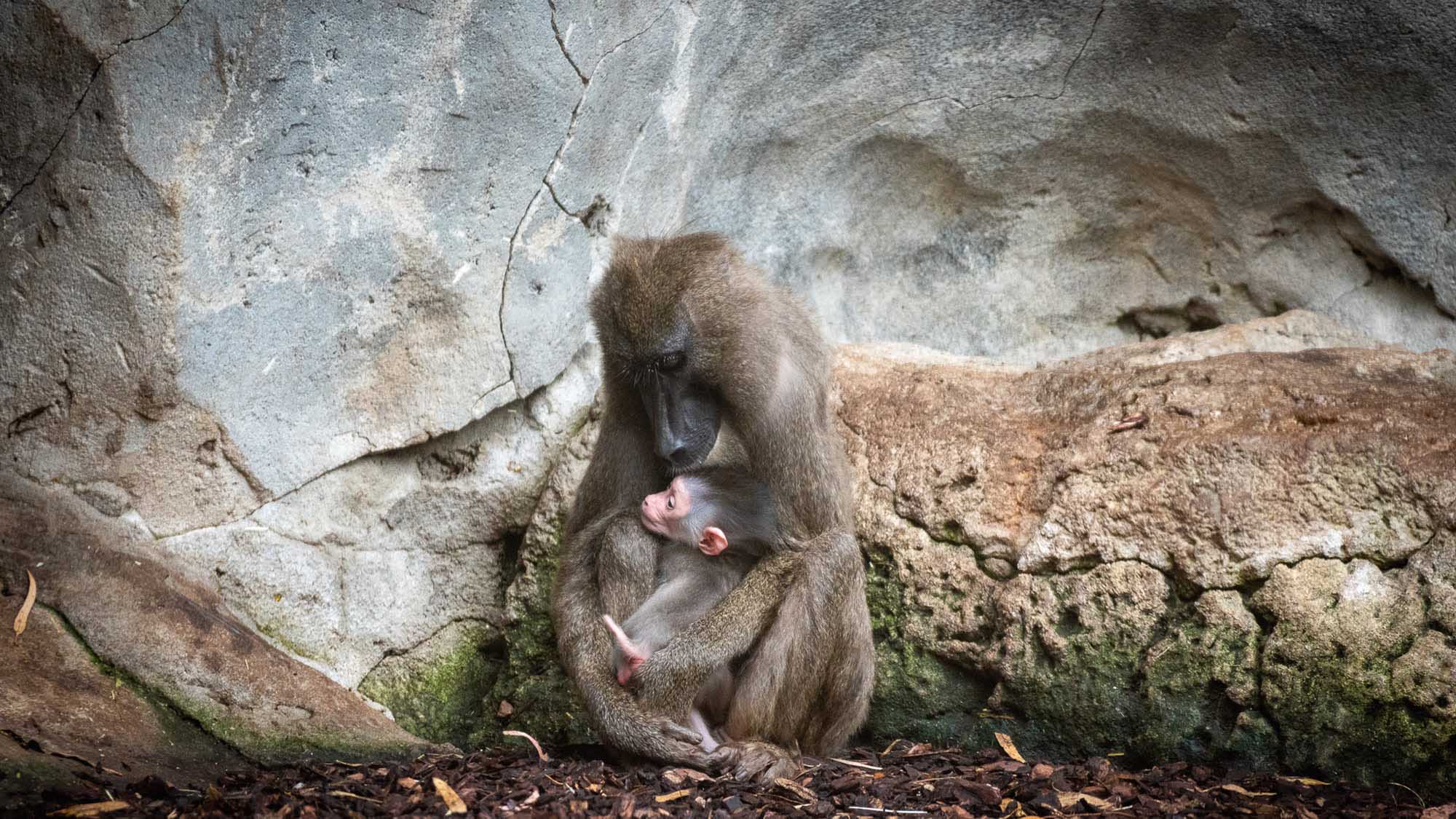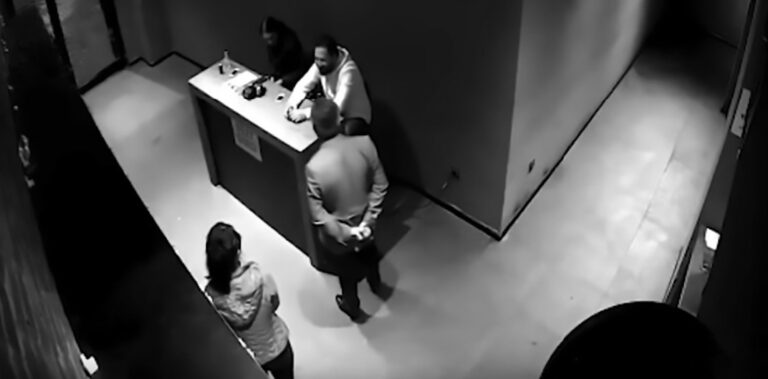This adorable primate from a species listed as ‘endangered ‘ has been born at a Spanish zoo to a female from a group headed up by a dominant male called “Rafiki” after the Lion King.
The birth took place at Bioparc Valencia in the city of Valencia, in the region of the same name, in south-eastern Spain on the Mediterranean coast.
In a statement Bioparc Valencia sent to Newsflash, they said that the primate, a drill (Mandrillus leucophaeus), is “one of the most threatened primates in Africa.”
They added: “Drills are included on the IUCN Red List and their alarming decline raises concerns that their situation will become ‘critical’. The ‘baby’ represents a new success to guarantee the species’ survival within the international project in which the Bioparc participates.”
Making the announcement on Thursday 26th August, the zoo said: “This summer has been especially exciting for the entire Bioparc team, as really important births continue to take place. On this occasion, it was Abuja, one of the two adult females of the drill breeding group, who gave birth to a new baby.
“The large family of 10 members is headed up by the dominant male Rafiki, the female Kianja and their offspring.”
It is currently unclear if Rafiki is the newborn drill’s father.
The zoo said: “Through its participation in the European Endangered Species Program (EEP), the Valencian park has established itself in recent years as a benchmark in the ex situ conservation of this endangered species.”
The zoo said that there are not many drills left in the wild, and that they are among Africa’s most threatened species. They said: “The drill is one of the most endangered primates in Africa. Included on the IUCN’s (International Union for Conservation of Nature) Red List, it is feared that, with a population of less than 4,000 individuals and with a downward trend, the species’ situation will become ‘critical’.”
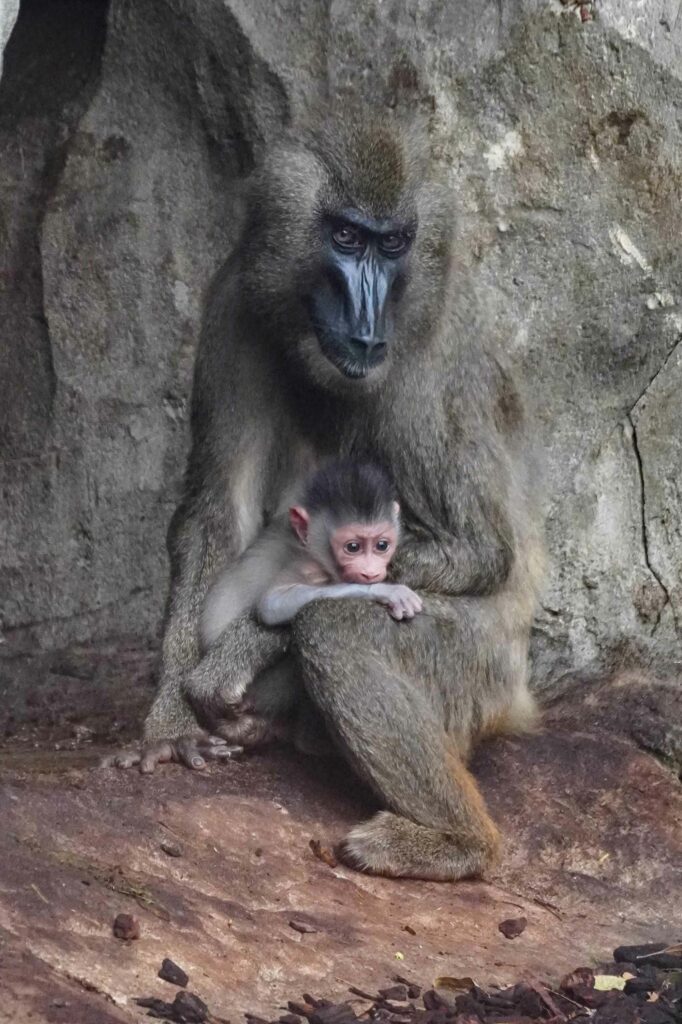
Explaining why these primates are so threatened, the zoo said: “Of primary concern is their extreme fragmentation, habitat loss and poaching, so each birth represents a success towards their survival. In one of its main in situ conservation collaborations, the Bioparc Foundation works on the Ebo forest (Cameroon).”
Speaking about their appearance, the zoo said: “This little-known African primate has a very peculiar appearance with a marked sexual dimorphism and a social structure led by a reproductive male. Notably larger than females, males develop colourful blue-purple markings on the buttocks and deep red on the genital area and next to the lower lip.
“Equally characteristic of the species is its face; completely clear at birth, it darkens to look like a deep black mask that, together with the prominent fangs that are visible when yawning, gives them a fierce appearance.
“After the technical team verified that the breeding is developing normally, at Bioparc, visitors can now see the whole family in one of the most attractive multi-species enclosures in the park: the area that recreates the riverside forests of Equatorial Africa, in the ‘multispecies’ enclosure where they coexist with other species of animals such as sitatungas, pygmy hippos, talapoins and Nile geese.”
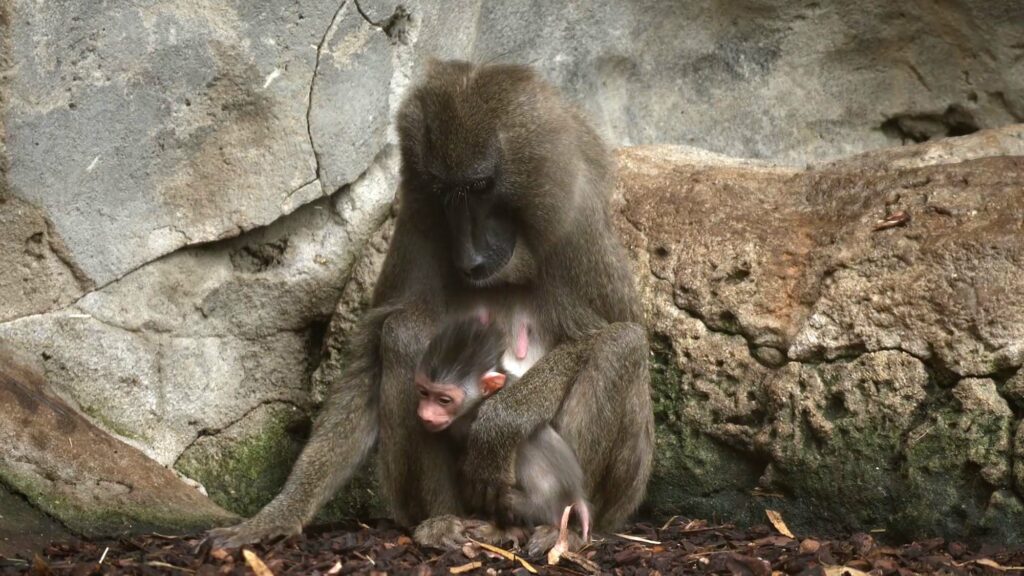
The primate Abuja who gave birth on 26th August, with her newborn in BIOPARC Valencia, Spain. 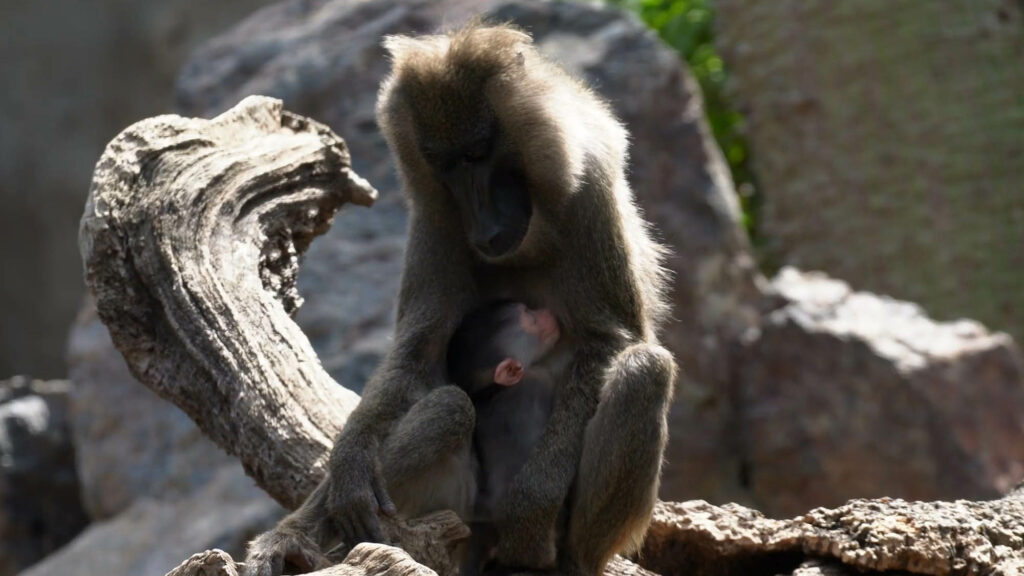
The primate Abuja who gave birth on 26th August, with her newborn in BIOPARC Valencia, Spain.
To find out more about the author, editor or agency that supplied this story – please click below.
Story By: Joseph Golder, Sub-Editor: James King, Agency: Newsflash
The Ananova page is created by and dedicated to professional, independent freelance journalists. It is a place for us to showcase our work. When our news is sold to our media partners, we will include the link here.

